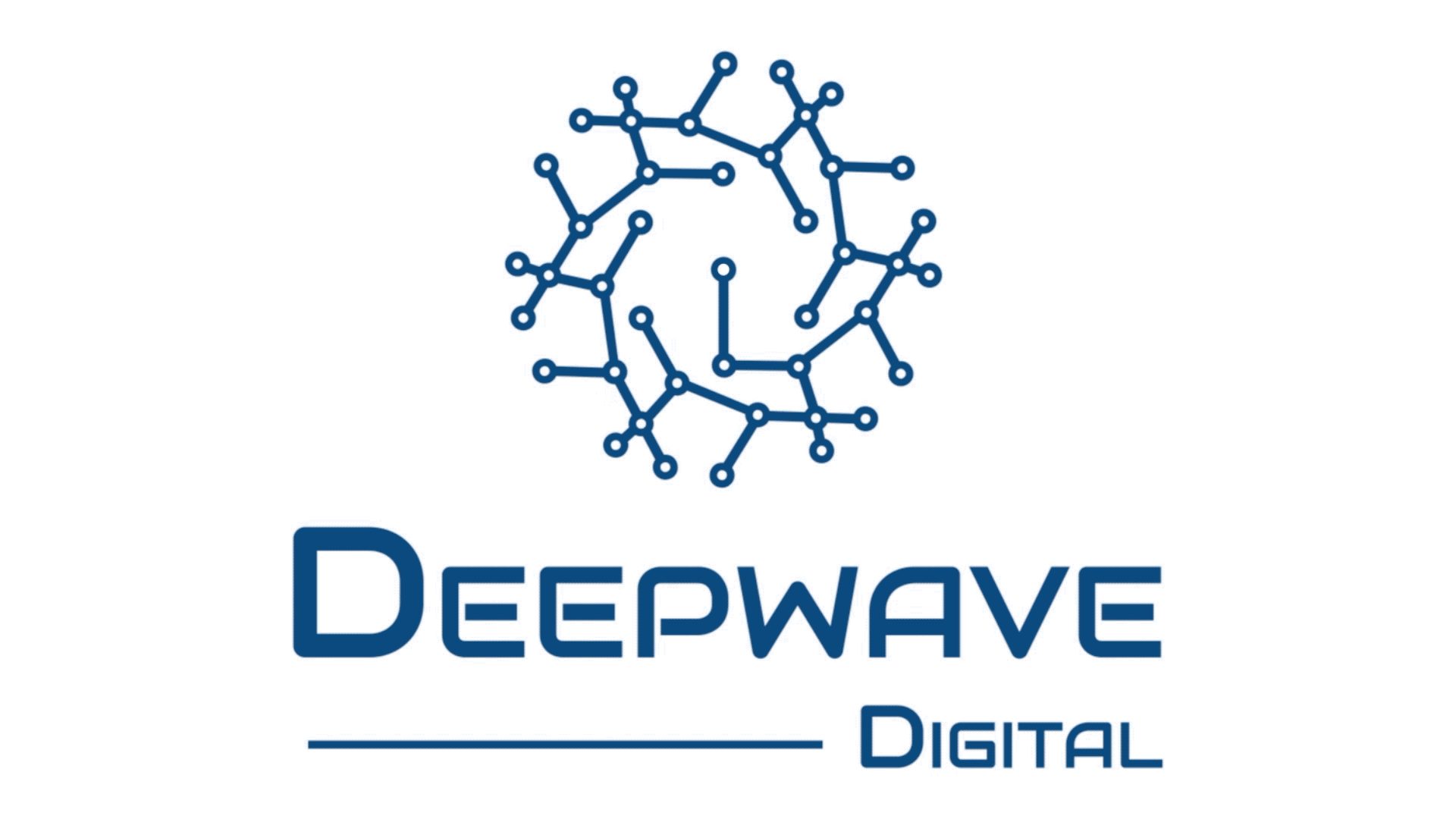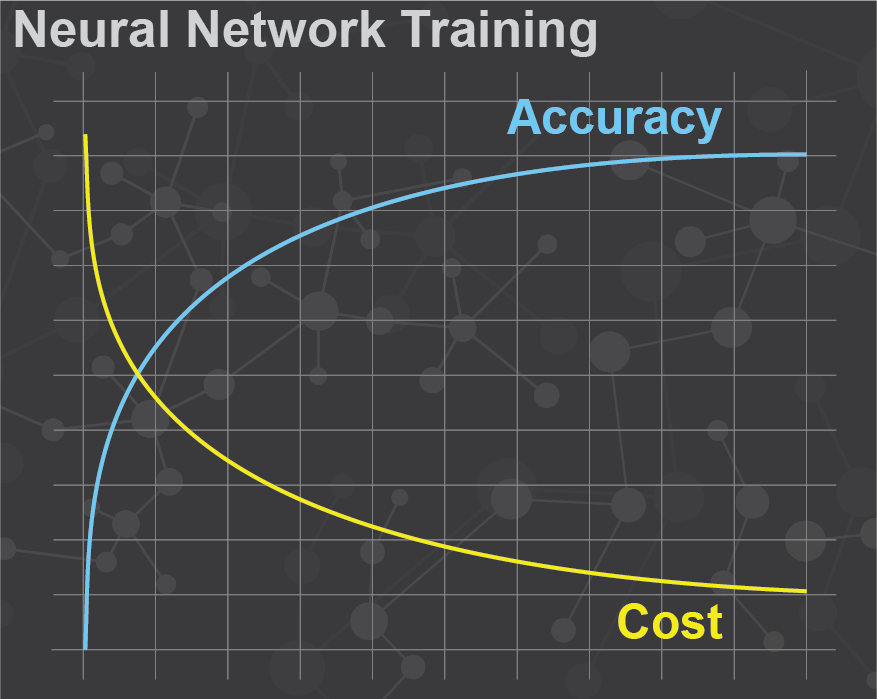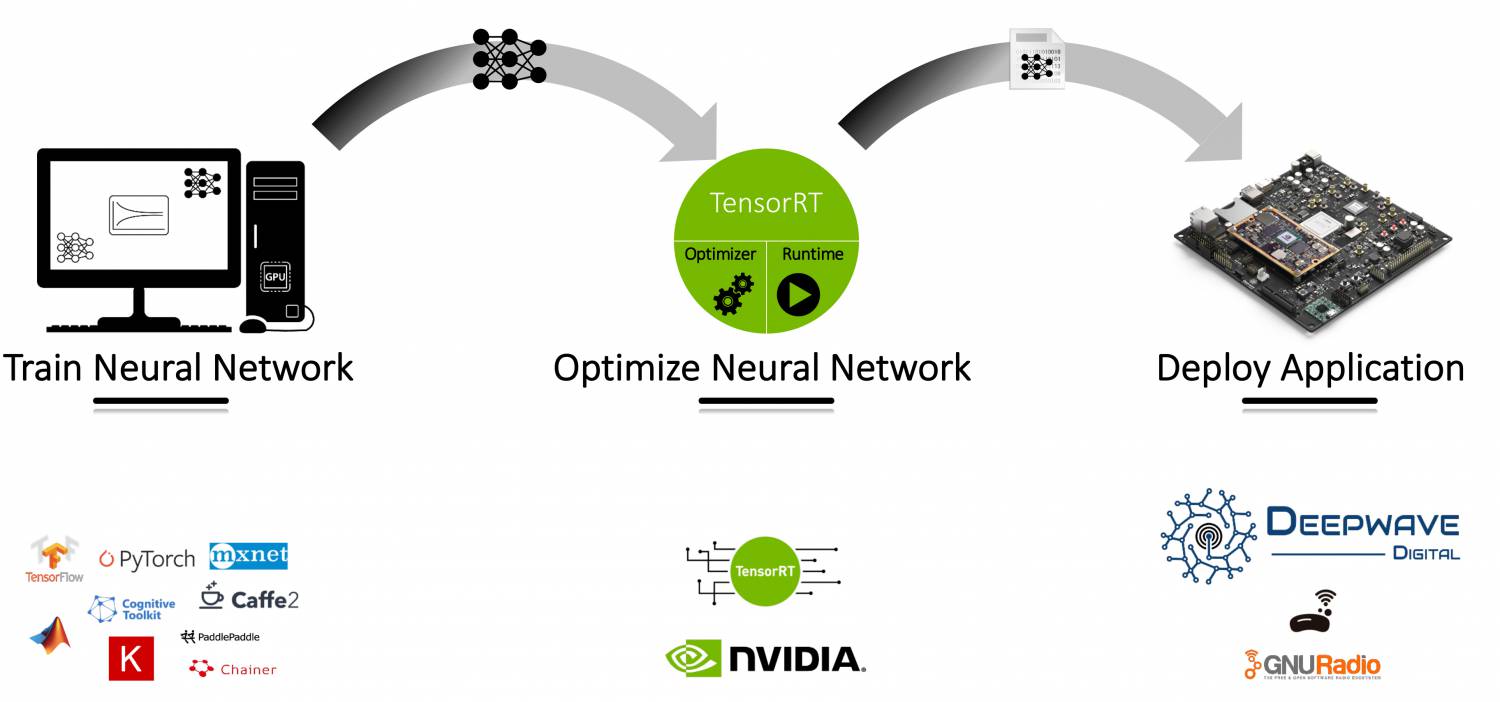
AirPack is a comprehensive introductory solution for developers who are looking to integrate deep learning into software defined radio systems. This software package will provide you with all of the tools you need to build and deploy your first neural network on the AIR-T.
AirPack contains everything you need, including TensorFlow source code, to walk you through the crucial steps of training a simple convolutional neural network (CNN) to detect and classify radio frequency (RF) signals. AirPack provides you a complete framework for training a neural network on RF signal data. By providing a custom Docker environment with AirPack, the hassle of installing all of the complicated drivers, files, and toolboxes are eliminated. Once installed, you will have your first trained model in less than an hour1. After running the AirPack source code, the software will produce an RF signal classifier neural network that is deployable on the AIR-T software defined radio. Users of AirPack will shave months off of the learning and engineering development cycle, leading to a reduction in labor cost and faster time to market.
The AirPack package contains:
-
- Custom Docker file to easily build the training environment
- Labeled synthetic training data
- Python source code for a TensorFlow CNN model
- Data reader Python class for TensorFlow
- Python script to train the model
- Python script to perform inference
- Toolkit to deploy the trained model on the AIR-T 2

The figure below outlines the workflow for training, optimizing, and deploying a neural network on the AIR-T. The AirPack package instantly places a functional example of this workflow at your finger tips. By reducing the time required for research, troubleshooting, and development, AirPack is the perfect solution to hit the ground running with AI in software defined radios.

Step 1 – Train
Train the provided neural network model with the provided data set. This is all setup for you and only requires execution.
Step 2 – Optimize
Optimize the trained model using TensorRT. All of the software to perform this optimization is provided in AirPack.
Step 3 – Deploy
Deploy the optimized model on the AIR-T for execution.2
Customize and Repeat
The AirPack license allows you to modify the source code to your liking, adapt it to your application, and distribute the binary output for personal or commercial purposes. As an example, it may be modified with more advanced channel models based for your specific needs. These changes, and the resulting model, can be proprietary under the licensing terms.

1 The training of the neural network will need to be performed on a computer that supports TensorFlow. While the AIR-T does contain a GPU, training on it will take significantly more time than on a larger PCIe-based GPU. As a result, it is recommended to train on a desktop computer or server with such a card installed. Feel free to contact us for recommendations on suitable cards for training.
2 While the result may be deployed on the AIR-T, the use of synthetic training data will limit the functionality in real-world operation. AirPack is a software launching point to reduce development time, not a final solution. Contact us for more details on making the model robust to real-world effects.

